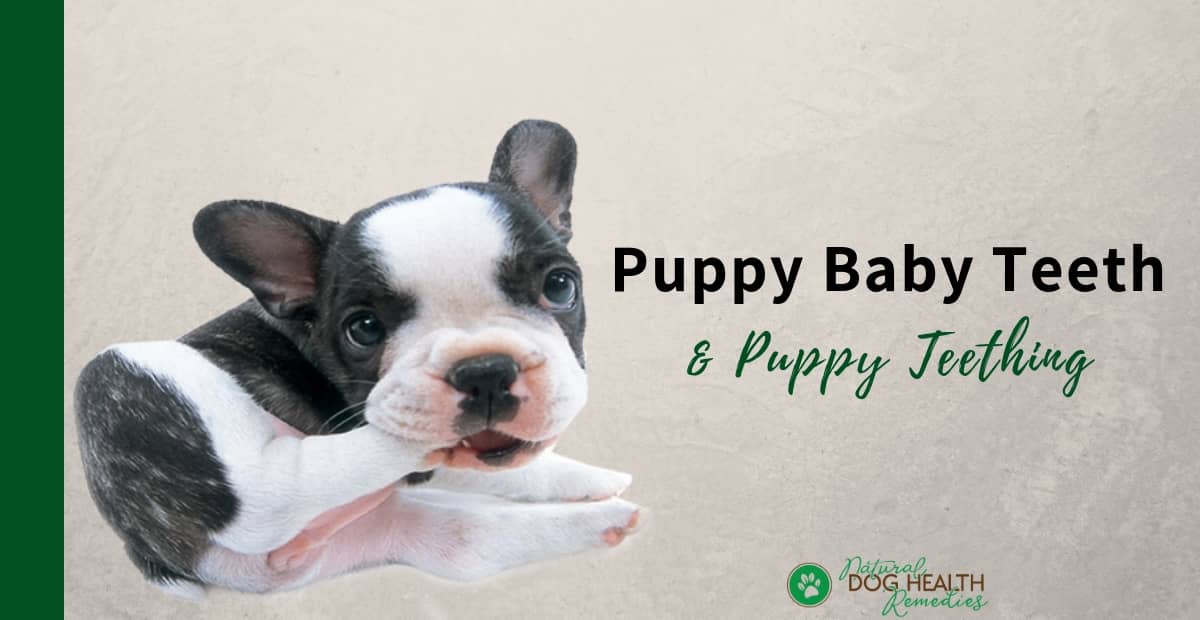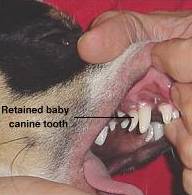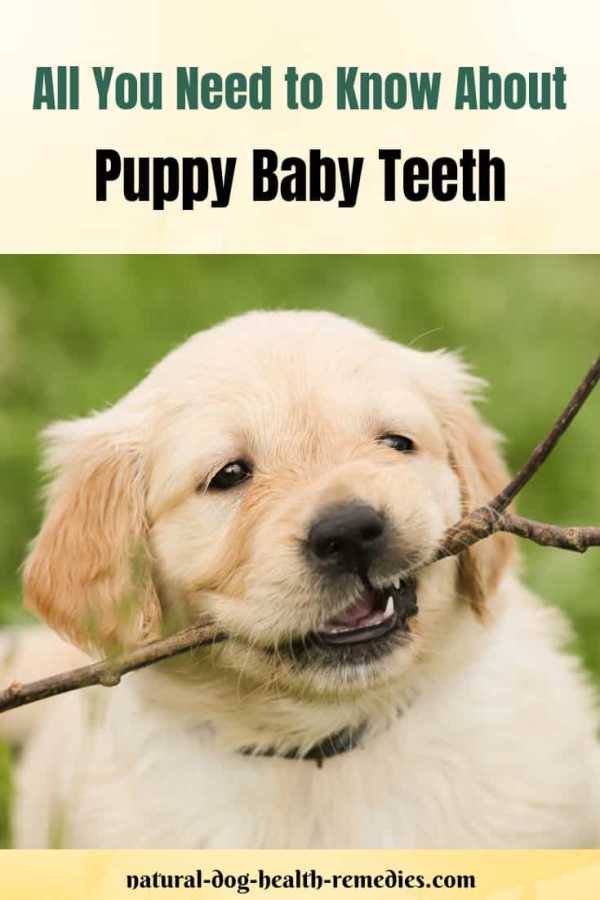Puppy Baby Teeth

Overview
If you are the proud owner of a small puppy, paying attention to and looking after the puppy's teeth is an extremely important part of puppy care. Want to know more about puppy baby teeth? You have come to the right place!
This page looks at the following:
- When do puppies start teething?
- How many teeth do puppies and dogs have?
- At what age do puppy teeth fall out?
- What is meant by "retained deciduous teeth"?
- How are retained deciduous teeth treated?
- How should we care for puppy baby teeth?
When Do Puppies Start Teething?
Puppies are born without any teeth. When they reach about 4 weeks of age, the first puppy baby teeth (sometimes referred to as "milk teeth", or deciduous teeth) start to break through the gumline - a process referred to as "erupting".
So when do puppies end teething? That depends on the individual pup. Generally speaking, most puppies are in the continued process of "teething" ("erupting" or replacing the baby teeth) until they are about 7-9 months of age.
During the teething period, the gums of the puppies are raw and sore, causing the puppies to chew on everything in order to alleviate the pain and irritation. It is therefore important to provide them with lots of chew toys and treats for teething to make them more comfortable (and to save your furniture and shoes!).
There are also useful natural remedies such as herbs and homeopathic remedies that soothe the teething pain. Visit our page on Dog Teething Pain Relief for more information.
How Many Teeth Do Puppies and Dogs Have?
Puppies have a total of 28 baby teeth by the time they reach 45 days of age. The first puppy baby teeth to erupt are the canine teeth and incisors, followed by the premolars. Puppies do not have molars.
Adult dogs generally have 42 permanent teeth, but some breeds (e.g. greyhounds) have more and some breeds (e.g. doberman pinchers) have fewer.
At What Age Do Puppy Teeth Fall Out?
When puppies are 2 to 3 months old, they start to lose their baby teeth and permanent teeth start to erupt. Most breeds will have all their permanent teeth at 6 to 7 months of age. Larger breeds tend to erupt earlier than smaller breeds.
The first permanent teeth to come out are the incisors. They are then followed by the canines, premolars, and molars.
Specifically, the following shows the approximate order of eruption of the permanent teeth:
- Incisors: 2-5 months
- Canines: 5 months
- Premolars: 4-6 months
- Molars: 5-7 months
What is Meant by "Retained Deciduous Teeth"?

Source: animalcentral.net/blog/
When a puppy gets to be 2 to 3 months old, permanent teeth start to erupt. Normally, each puppy baby tooth root will be absorbed by the adult tooth. This causes the baby tooth to loosen and fall out as the permanent tooth erupts.
However, sometimes this resorption process does not work properly.
For example, when a permanent tooth erupts next to the baby tooth, the root of the baby tooth is not absorbed by the permanent tooth and the baby tooth does not fall out. This is commonly referred to as a "retained deciduous tooth". This mostly happens with the incisors or upper canine teeth.
When the permanent tooth and the baby tooth are trying to occupy the same area, the new permanent tooth usually erupts at an abnormal angle or in an abnormal position, causing an abnormal "bite" or "malocclusion".
As you can imagine, retained deciduous teeth can cause health problems to a puppy.
For example, the normal growth of the jaw bone may be hindered by an abnormal teeth alignment. Also, teeth that are mis-aligned can make it difficult for the puppy to eat.
They can also accidentally cause the puppy to bite the inside of the mouth, causing pain and potential infections.
How are Retained Deciduous Teeth Treated?
Retained deciduous teeth must be extracted to prevent serious malocclusion problems from occurring. If retained teeth are removed at an early stage, the permanent teeth can usually move into their normal positions.
As anesthesia is required for extraction of retained deciduous teeth, they are usually removed during spaying or neutering.
How Should We Care for Puppy Baby Teeth?
 If you have a teething puppy, it is important to check the puppy's mouth every week until about 7-8 months of age to ensure that the teeth are growing normally.
If you have a teething puppy, it is important to check the puppy's mouth every week until about 7-8 months of age to ensure that the teeth are growing normally.
If you find any retained teeth, or if you suspect your puppy has an abnormal bite, seek veterinary assistance immediately.
Dental care is extremely important to your dog's whole body health.
Therefore, get into the habit of brushing your dog's teeth early. Start when your dog is still a puppy. You may want to first use a finger brush or even gauze to clean your puppy's teeth, and then eventually move on to a toothbrush.
Brushing regularly (preferably daily but at 3-4 times per week) will prevent early gingivitis and periodontal disease later in your dog's life.
ReferencesEldredge, et al. Dog Owner's Home Veterinary Handbook 4th edition (Wiley Publishing, 2007).
R.H. Pitcairn, The Complete Guide to Natural Health for Dogs and Cats (Rodale, 2005).






